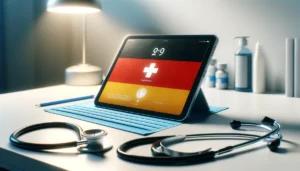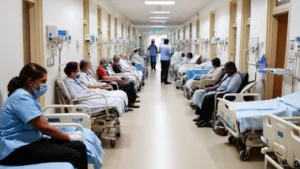Articles & News
- Accueil
- Blog
26. janvier 2023
News from the Capitals
News from the Capitals #52

France
Sunday 22 January was the anniversary of the Elysée Treaty. This cooperation treaty was intended to seal and strengthen the relationship between France and the Federal Republic of Germany at the time. In 1963, President Charles de Gaulle and Chancellor Konrad Adenauer met in Paris to lay the foundations for reconciliation between the two nations and to move Europe forward 18 years after the Second World War.
During this day, all members of the German and French governments met in the different ministries to continue the cooperation and friendship between France and Germany. Even if there are some disagreements on several topics, notably on the war in Ukraine, on the response to the Inflation Reduction Act, the vast aid plan of almost 400 billion dollars initiated by the United States, or about the future of the European Union’s economic policies. Emmanuel Macron and Olaf Scholz expressed their confidence in finding compromises on various issues. Other announcements were made notably on One Health, the ban on PFAS, and rail cooperation with the opening of a direct line between Paris and Berlin but also on industry policy.
At the same time, the pension reform continues to arouse the anger of the unions and opposition. A new strike has been announced for 31 January and might last two days this time. The government has promised to add several amendments to the text to take into account: arduousness, long professional careers, and women’s pensions. This reform has taken up a lot of space in the media in recent days
UK
NHS Strikes escalate in the UK: Health Unions urging the government to take action
Last week about 16,000 paramedics, call handlers and other ambulance workers staged a stoppage in the emergency services covering various parts of London in a campaign against below-inflation pay rise. Now, the first-time physiotherapist-members of the Chartered Society of Physiotherapy (CSP) have decided to join the ongoing industrial action. Jeremy Hunt, Chancellor of the Exchequer has been urged to release new money to end the wave of strikes disrupting NHS services or risk the dispute dragging on for months. Even more, health union leaders have urged Rishi Sunak to resolve the deepening NHS pay dispute to stop the biggest strike in the service’s history going ahead on 6 February.
The chairman of the Conservative Party, Nadhim Zahawi, is coming under increasing political pressure to fully explain the circumstances of a multimillion-pound tax settlement.
The tax bill is connected to shares in YouGov, a polling company Mr. Zahawi co-founded in 2000 before he became an MP. Mr. Zahawi has not confirmed how much his penalty amounted to, nor the total value of the final settlement with HM Revenue & Customs regarding, though it is estimated to total over £5 million. The Labour Party is calling for his resignation under transparency rules brought in by the coalition government in the UK claiming that the firm should have made public who was personally in charge. Sunak asked his independent ethics adviser to investigate whether Mr. Zahawi had broken the ministerial code and later defended his decision to launch an ethics inquiry into Nadhim Zahawi rather than firing him, at Prime Minister’s Questions. This has added to the mounting pressure the Tory government is already facing in the UK.
Germany
Gender Medicine: More Awareness of Heart disease in women
For a long time, it was thought that heart attacks would only affect men. But cardiovascular diseases are also the number one cause of death in women. In Germany, about 20,000 women die of a heart attack every year. However, both women themselves and doctors underestimate the risk of women suffering a heart attack, high blood pressure, or cardiac arrhythmias.
Yearly, around 181,000 women die from cardiovascular disease. The number is higher than the one of men. Around 158,000 men die from cardiovascular diseases every year.
A group of medical doctors and pharmacists would like to raise awareness for this topic on February 3. Women are asked to wear clothing in the color red. This initiative is inspired by the „National Wear Red Days“ in the US.
Chancellor Scholz gives the green light for sending Leopard 2 tanks to Ukraine
After being indecisive for a long time Chancellor Olaf Scholz agreed to send 14 Leopard 2 tanks to Ukraine. He also allowed other countries to send their Leopard 2 tanks too. Ukraine there is hope that this will be a game-changer.
Germany produces the vast majority of modern heavy tanks in Europe – the Leopard 2s. Around 2,000 of them are spread out amongst European allies. Germany owns all the export licenses for them. According to Boris Pistorius, Federal Minister of Defense, Leopard 2 tanks could be delivered within the next three months. Ukrainian soldiers still need to be trained in how to use vehicles.
The reasons for Chancellor Scholz’s indecision have various reasons. Of huge significance is the weight of history felt by German modern-day leaders and Chancellor Scholz did not want to be the central facilitator of the battle tanks to Ukraine. Furthermore, many Germans fear that providing offensive weaponry and tanks to Ukraine could push Vladimir Putin to even use nuclear weapons.
One of the reasons for the change in the mind of Chancellor Scholz could be the realization that if he continued to hold those tanks back, he could find himself isolated amongst his allies.
Spain
Spain joins Germany, the United States, and other European neighbors in the tank’s shipment to Ukraine.
Germany’s decision to finally send Leopard tanks to Ukraine has pushed Spain out of ambiguity. The Iberian country has announced that is joining the list of countries that will deliver armored vehicles to rearm the Ukrainian Army.
This positioning was avoided at first by the Spanish Executive, not only to wait for the German decision but also because of the opposition of Unidas Podemos, a partner of the current Coalition Government, towards this shipment.
Masks will no longer be mandatory on public transport.
Although in many European countries, it is hard to remember the times when face masks were compulsory worn in public transport, this is still the daily life of the Spanish people. However, it seems that this situation is about to change, according to statements made by the Government Spokeswoman Minister, Isabel Rodriguez: the Government plans to withdraw “immediately” the compulsory use of masks in public transport as a result of the limited impact that the opening of China’s borders has had on Spain.
Primary Care Doctors’ Strike: Catalonia joins Madrid to demand better working conditions.
Primary Care doctors in Madrid continue their strike to demand better conditions. The protests began on November 21 last year, and since then negotiations with the regional government to reach an agreement have not been successful. Catalan doctors have joined the same strike since Tuesday, January 24. The secretary general of Doctors of Catalonia has accused the Department of Health of “turning the health system into a factory where the quality of care is secondary”.
Italy
Political Situation
First cracks within Brother of Italy, friction between Rampelli and Prime Minister Meloni;
The Premier said she was dissatisfied with the behaviour of her subordinate Fabio Rampelli, guilty of having organized a meeting independently – with more than a thousand guests – for the presentation of the candidacy for regional councillor – Fabio Ghera.
The main issue that is shaking things up in the brothers of Italy party is the struggle, which has so far gone quietly, for the affirmation of the dominance of the Roman electoral district.
This power struggle would concern the Hon. Rampelli and his party partner and husband of Giorgia Meloni’s sister, Francesco Lollobrigida. Rampelli would like to demonstrate to the Premier that his electoral base is wider than that of Lollobrigida. For her part, the Premier does not tolerate any current within her party and is motivated to pursue this line without leaving room for Rais of any sort.
As part of the reorganization of the Italian Medicines Agency, Anna Rosa Marra was appointed as substitute general manager;
Dr. Marra has been appointed as the substitute Director General of the Italian Medicines Agency by decree of the Minister of Health. She has been a key member of the AIFA team since 2017, where she served as the Director of the Post-Marketing Supervision Area, making her the most experienced manager at the agency.
Dr. Marra holds a degree in Pharmacy and has a wealth of experience in the field, having held various key positions within AIFA, including Director of the Health Technology Assessment and Drug Economics Sector, Director of the Evaluation and Authorization Office, Coordinator of the Registration Area, Director of the Marketing Authorization Office and Director of the Workshop Authorization Office – Production and Control Area.
Additionally, she also held managerial positions in the Ministry of Health in the past. Dr. Marra will be leading the Italian Medicines Agency until the new structure defined by Law Decree n.169 of 2022 comes into effect.
The Government has approved the decree law which introduces urgent provisions on shelf procedures for exceeding the spending ceiling for medical devices.
The Council of Ministers, on the proposal of Prime Minister Giorgia Meloni, of the Minister of Economy and Finance Giancarlo Giorgetti, and of the Minister of Health Orazio Schillaci, approved the decree-law n.4 – 11/01/2023 which introduces urgent provisions on shelf procedures for overcoming the expenditure ceiling for medical devices.
“Notwithstanding current regulations and limited to the years 2015, 2016, 2017, and 2018, the text – explains the note from the Government – postpones to 30 April 2023 the deadline within which medical device supplier companies are required to comply with the obligation to cover the exceeding of the expenditure ceiling placed on them, by making payments in favor of the individual regions and autonomous province
Belgium
Medicine Exports in light of shortages: Yes, No, or Maybe?
The current shortage of medicines in Europe continues. Although currently still manageable, the crisis shows first clear signs of market distortions: As the situation is worse in Germany than in Belgium, there now exists a movement of German patients crossing borders to buy medicines in close border Belgian pharmacies.
On Monday evening, federal health minister Frank Vandenbroucke raised the idea of limiting exports of medical products from Belgium to other countries. The move stirred quite a controversy, involving the industry, civil society organisations, pharmacy interest groups, and not least the federal minister of economy.
Ever since the COVID pandemic started, the pharmaceuticals and medicines market has been out of balance. Given the intense production in India and China, Europe would be well adviced to strengthen its capacities in the production of medicines to enhance the continent’s strategic autonomy and be better prepared for global disruptions.
High-speed train giants Eurostar and Thalys fuse
On Tuesday, train services Eurostar and Thalys revealed their new, uniform logo, which will replace the existing one on all respective trains within the upcoming months. The two companies will fuse, under the umbrella name of Eurostar. Until autumn, there shall be a unified webpage as well as an app. The ambitions of the fusion are eager: Until 2030, the then-unified company intends to transport 30 million passengers annually; More than double the number of 2022.
Belgian Army set to shrink significantly through pensions of top-personnel
Belgian’s army faces a significant wave of pensions: 6 out of 7 three-star-generals are about to leave the workforce by the end of Q1, with more than 50% of the two-star generals retiring before the end of the year. There is a significant gap between these retirements and the young talents joining the armed forces. Although having suffered horribly during both world wars and being a founding member of NATO, Belgium has by no means a strong military culture. Furthermore, the Belgian Armed Forces are publicly stigmatised as being extreme right, white supremacists, reminiscing the country’s horrifying colonial past.
Furthermore, matters of new Army recruits are additionally complicated through a commitment to ensure an equilibrium between French and Dutch speakers at all ranks and all weapon classes. Although it sounds like some weird joke, this is due to the mutual suspicion that the other language group might be incentivized towards suppressing the own, if there would not be a balance in the Army. Once again, mocking the Belgian’s state principle “L’Union fait la force!”, “Unity gives strength”.
Greece
Supporting dental care for children
On 18 January, the Ministry of Health submitted a bill that will provide for the first time free preventive dental care for children from 6 to 12 years old. The financial support is credited to the beneficiaries on a digital debit card, issued specifically for this purpose by a credit institution or financial organization.
The surveillance scandal threatens the government
On 24 January, Alexis Tsipras, head of the leading opposition party SYRIZA, tabled a motion for a no-confidence vote against the government during his intervention on the surveillance issue. During his speech in the parliament, Alexis Tsipras noted that: “journalists, MEPs, the president of PASOK-KIN.ALL. (Greek Socialist Party), ministers, businessmen, officers of our armed forces, became victims of an illegal and dirty network, (…) coordinated by the prime minister himself”. Nevertheless, despite this effort of the opposition, the motion will not pass as the government still holds the majority in the parliament.



